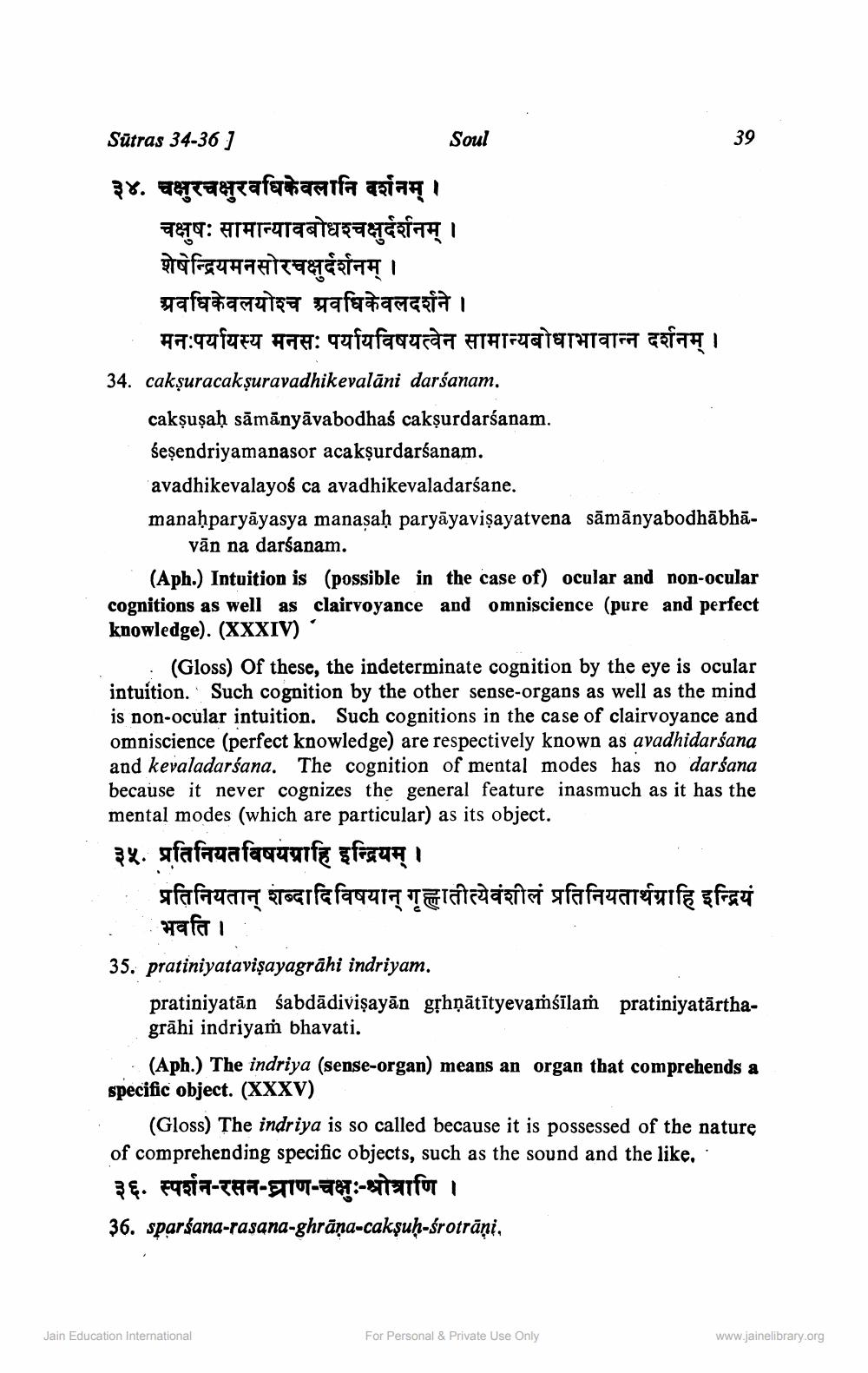________________
Sutras 34-36]
Soul
39 ३४. चक्षुरचक्षुरवधिकेवलानि वर्शनम् ।
चक्षुषः सामान्यावबोधश्चक्षुर्दर्शनम् । शेषेन्द्रियमनसोरचक्षुर्दर्शनम् । अवधिकेवलयोश्च अवधिकेवलदर्शने ।
मनःपर्यायस्य मनसः पर्यायविषयत्वेन सामान्यबोधाभावान्न दर्शनम् । 34. caksuracaksuravadhikevalāni darsanam.
cakṣuṇaḥ sāmānyāvabodhaś cakşurdarśanam. śeșendriyamanasor acakṣurdarśanam. avadhikevalayoś ca avadhikevaladarśane. manaḥparyāyasya manasaḥ paryāyavişayatvena sāmānyabodhābhā
vān na darśanam. (Aph.) Intuition is (possible in the case of) ocular and non-ocular cognitions as well as clairvoyance and omniscience (pure and perfect knowledge). (XXXIV)
(Gloss) Of these, the indeterminate cognition by the eye is ocular intuition. Such cognition by the other sense-organs as well as the mind is non-ocular intuition. Such cognitions in the case of clairvoyance and omniscience (perfect knowledge) are respectively known as avadhidarśana and kevaladarśana. The cognition of mental modes has no darśana because it never cognizes the general feature inasmuch as it has the mental modes (which are particular) as its object. ३५. प्रतिनियतविषयग्राहि इन्द्रियम् ।
प्रतिनियतान् शब्दादिविषयान् गृह्णातीत्येवंशीलं प्रतिनियतार्थग्राहि इन्द्रियं
भवति। 35. pratiniyatavisayagrāhi indriyam.
pratiniyatān sabdādivişayān gļhạātītyevamśīlam pratiniyatārthagrāhi indriyam bhavati.
(Aph.) The indriya (sense-organ) means an organ that comprehends a specific object. (XXXV)
(Gloss) The indriya is so called because it is possessed of the nature of comprehending specific objects, such as the sound and the like.. ३६. स्पर्शन-रसन-घ्राण-चक्षुः-श्रोत्राणि । 36. sparsana-rasana-ghrāna-caksuh-srotrānt,
Jain Education International
For Personal & Private Use Only
www.jainelibrary.org




